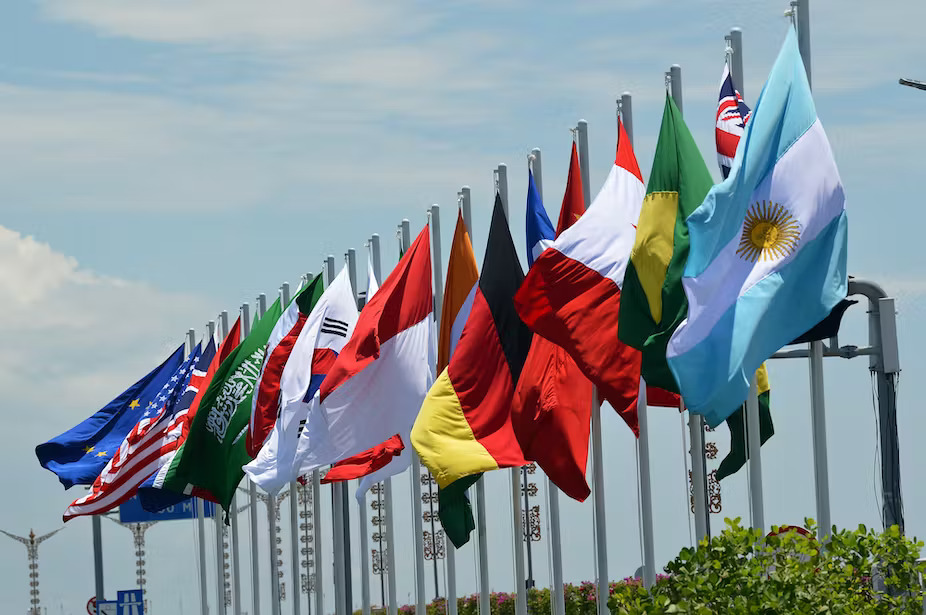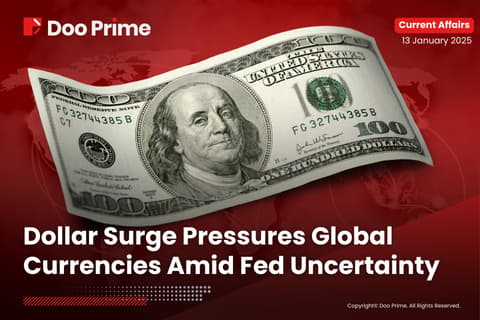Today’s News

Image Source: The Conversation
Industry experts caution that the G20’s initiative to speed up international payments may risk enabling financial crime while undermining the effectiveness of sanctions against Russia and other nations.
According to the U.K.-based Future of Financial Intelligence Sharing (FFIS) research program, the drive to streamline digital payment systems by 2027 overlooks the growing susceptibility of these systems to criminal networks and the escalated risks of money laundering due to increased war-related sanctions.
Nick Maxwell, head of FFIS, criticized the lack of consideration for fraud prevention and financial crime security among G20 policymakers involved in payment reforms. In a report released by FFIS, Maxwell said, “A key institutional failure at the G20 level is the lack of responsibility among payments reform policymakers to consider fraud prevention and financial crime security”.
The report emphasized the urgent need for stronger collaboration between the public and private sectors to integrate financial crime prevention mechanisms into cross-border payment structures and utilize national data to identify money laundering networks.
Neglecting these concerns could have “wide-ranging negative impacts [for] consumer financial safety, law enforcement effectiveness against organized crime and national security in terms of sanctions implementation”, Maxwell highlighted.
Forecasts from the Bank of England project a surge in the value of cross-border transactions, expecting them to reach USD 250 tn by 2027 from USD 150 tn a decade earlier. The Financial Stability Board (FSB), responsible for overseeing the global financial system, introduced a roadmap for enhancing cross-border payments. Notably, the G20-led initiative is supported by the World Bank, the IMF, and around 40 central banks to facilitate cheaper, faster, and more transparent international payments by 2027.
Although the FSB’s roadmap aims to eliminate the limited time needed to screen transactions and recall funds before settlement, it lacks measures to address the heightened risk of cross-border fraud and associated money laundering, as highlighted in the FFIS report.
Under this plan, cross-border payments, typically processed within hours or days, could be settled within seconds, reducing the time available for compliance checks and blocking suspicious transactions.
Chris Lewis, head of research at Synectics, a fraud prevention software group, emphasized “the faster the money moves the less time people have to react . . . speed does not have to compromise security but it can if you don’t embed security within the scheme”.
Alaina Gimbert, senior vice-president at the Clearing House, raised concerns that the G20 plan fails to adequately tackle the necessity of enforcing sanctions by blocking transactions in real-time, a crucial requirement for most US sanctions programs.
“You can’t pretend that these compliance issues don’t exist. The G20 has not really given that risk the level of attention that it needs,” she said.
Since Russia’s full-scale invasion of Ukraine nearly two years ago, there has been a significant rise in Western sanctions. These measures have heavily impacted Russia’s financial institutions, which belong to the G20. Some of the largest banks in the country were expelled from the Swift global payments system, responsible for processing trillions of dollars in transactions daily.
Moreover, numerous executives closely associated with President Vladimir Putin have been barred from utilizing Western financial systems. Additionally, Western companies are restricted from importing a range of commodities originating from Russia. These actions highlight the extensive consequences and limitations imposed on Russia by Western nations due to its actions in Ukraine.
Gimbert urged governments to engage in candid discussions to balance the objectives of expediting international payments with enforcing economic sanctions, emphasizing the necessity for compromise.
The FSB did not respond to requests for comment on concerns relating to the progress report. The FFIS published its report in collaboration with the Centre for Financial Crime and Security Studies, a research program of the UK-based Royal United Services Institute, an independent defense and security think tank.
Other News
Texas Fund’s Green Investment Defies Anti-ESG Laws
Texas’ USD 51 billion school fund’s USD 300 million commitment to Macquarie’s energy transition fund challenges anti-ESG laws, revealing complexities in fiduciary decisions amidst regulatory restrictions.
Justice Department Examines Apple In Antitrust Probe
The Justice Department is poised to file an antitrust lawsuit against Apple, examining how the tech giant leveraged its hardware and software control to inhibit consumer device switching and hinder competition.
Biden Faces Dilemma Over Japanese Bid For U.S. Steel
Japanese company Nippon Steel’s USD 14.1 billion bid to acquire U.S. Steel prompts a review by Biden’s administration amid concerns over lost manufacturing jobs and national security implications.



